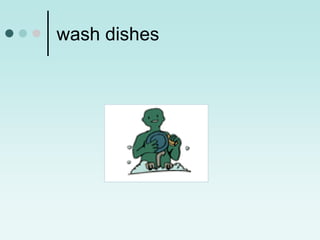

To put/push something in or through a machine.Įxample : He just bought this battle meter to use for his work.To give advice or information to someone.Įxample: Many media fed us fabrications, exaggerations, and lies.To give a plant substances to be able to promote it to grow.Įxample: I was away for two weeks, and my son fed all the potatoes.However, my child is almost two years old but still very dependent on my breast milk.Įxample: This amount of food fed an army last year, but now, you need to send this amount twice. By the way, have you fed the cat yet?”Įxample: My babies fed themselves without our help. The English verb feed has the following main meanings:Įxample: “Pizza and croissants I bought and left in the kitchen, you can reheat them in the microwave and eat them. You can watch the table below for more information.

The participle of feed is pronounced the same as the V2.
#SPOON FEED PAST TENSE HOW TO#
To know how to pronounce fed correctly and naturally as native speakers, you can click on this video feed past tense:Īccording to the Macmillan dictionary, the IPA transcription of fed is /fed/. He/She/It/I/You/We/They will/shall have been feeding He/She/It/I/You/We/They will/shall have fed He/She/It/I/You/We/They will/shall be feeding So the past and the past participle of the verb “feed” are similar. The feed in past tense and the feed past participle have the same written form, which is fed. The verb feed is classified as irregular, so its V2 rule doesn’t have the -ed after the verb’s basic form.
“Feed” Is a Transitive Or Intransitive Verb?. What Are Synonyms And Antonyms Of Feed?. Rather, subjunctive clauses recruit the bare form of the verb which is also used in a variety of other constructions. "It's crucial that you be here" and "It's crucial that he arrive early." In English, the subjunctive is syntactic rather than inflectional, since there is no specifically subjunctive verb form. The subjunctive mood in English is a clause type used in some contexts which describe non-actual possibilities, e.g. Examples of the subjunctive in English are found in the sentences "I suggest that you be careful" and "It is important that she stay by your side." Subjunctives occur most often, although not exclusively, in subordinate clauses, particularly that-clauses. It is often contrasted with the indicative, a realis mood which is used principally to indicate that something is a statement of fact. The subjunctive is one of the irrealis moods, which refer to what is not necessarily real. Subjunctive forms of verbs are typically used to express various states of unreality such as: wish, emotion, possibility, judgement, opinion, obligation, or action that has not yet occurred the precise situations in which they are used vary from language to language. The subjunctive is a grammatical mood, a feature of the utterance that indicates the speaker's attitude toward it. Also the aforementioned modal verbs could, might and should may replace would in order to express appropriate modality in addition to conditionality.) (Occasionally should is used in place of would with a first person subject – see shall and will. What is called the English conditional mood (or just the conditional) is formed periphrastically using the modal verb would in combination with the bare infinitive of the following verb. The conditional mood (abbreviated cond) is a grammatical mood used in conditional sentences to express a proposition whose validity is dependent on some condition, possibly counterfactual.Įnglish does not have an inflective (morphological) conditional mood, except in as much as the modal verbs could, might, should and would may in some contexts be regarded as conditional forms of can, may, shall and will respectively. An effect can in turn be a cause of, or causal factor for, many other effects, which all lie in its future. In general, a process has many causes, which are also said to be causal factors for it, and all lie in its past. 
Causality (also referred to as causation or cause and effect) is influence by which one event, process, state or object (a cause) contributes to the production of another event, process, state or object (an effect) where the cause is partly responsible for the effect, and the effect is partly dependent on the cause.







 0 kommentar(er)
0 kommentar(er)
